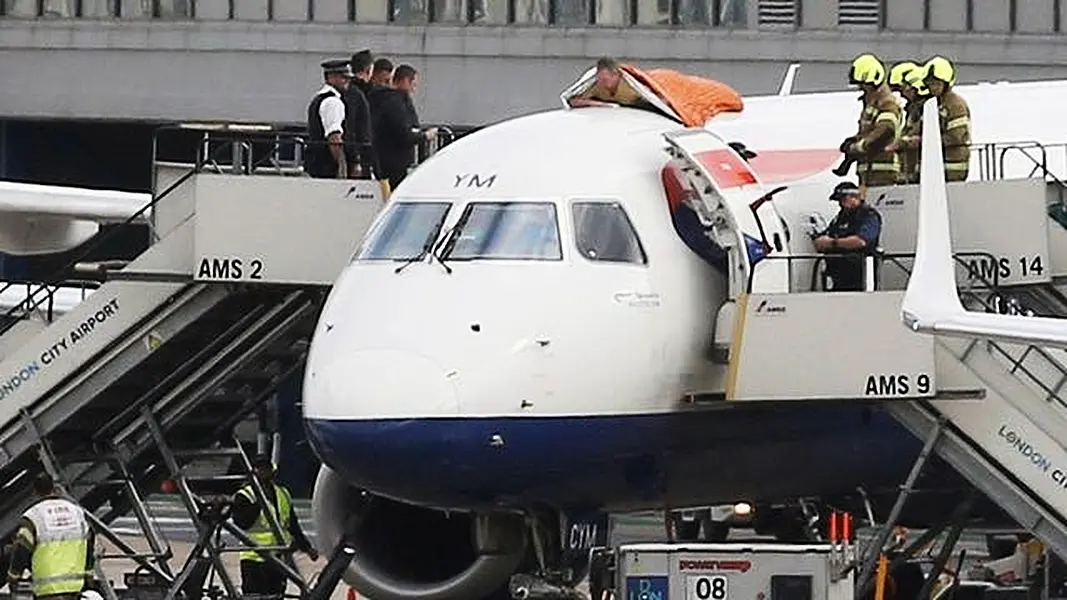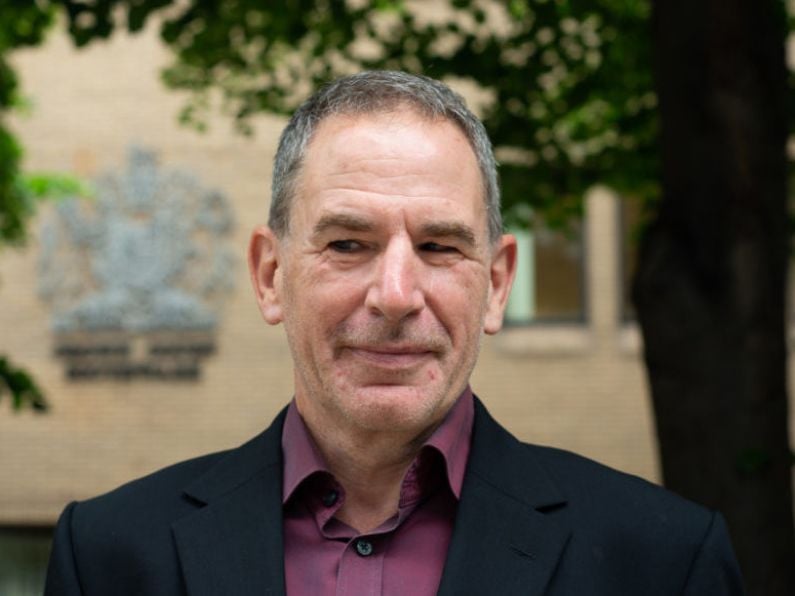By Henry Vaughan, PA
A former Irish Paralympic athlete who superglued himself to the roof of a British Airways plane during an Extinction Rebellion protest has been jailed for a year.
James Brown (56) who has been registered blind since birth, managed to scale the aircraft on the morning of October 10th, 2019 to stage a protest against flying at London City Airport.
The double gold medallist glued his right hand to the plane, which was destined for Amsterdam, before wedging his mobile phone in the door to prevent it from closing.
Portaferry-born Brown, who represented Britain in cycling and athletics before going on to represent Ireland in cycling, spent an hour on the aircraft before he was removed.

Prosecutors said he caused disruption to more than 300 British Airways passengers, costing the airline £40,000 (€46,000).
Brown, who represented himself at his trial, denied one count of causing a public nuisance, claiming he had “to do something spectacular” to draw attention to the climate crisis.
But he was found guilty at Southwark Crown Court in July after a jury deliberated for less than an hour.
Judge Gregory Perrins sentenced him to 12 months’ imprisonment, of which he will serve half, on Friday.
He told Brown: “The right to protest does not entitle you to cause major widespread disruption to a major airport… simply because you think it is the right thing to do.”
Judge Perrins said: “This is a case in which you acted together with at least 10 other activists to plan and execute a major act of disruption.
“You intended to cause the maximum amount of disruption possible at the airport if not shut it down completely.”
The judge told “accomplished athlete” Brown: “You cynically used your disability to put your plan into action”, adding: “You put your own life at risk by climbing on top of the plane.”
He said he accepted Brown was motivated “by a desire to bring about a change you genuinely believe is for the benefit of all” and that there must be a “sense of proportionality” when sentencing those who commit offences during a protest.
But he told Brown there is “no entitlement to more lenient treatment” because he was protesting about the environment.

The court heard that Brown had booked his flight on the morning of the stunt and had been offered assistance boarding due to his disability.
He had a bottle of superglue in his luggage that had not been detected by security, prosecutor Richard Witcombe told the jury during Brown’s trial.
Brown declined an offer by a member of cabin staff to help him to his seat, telling her that he was going to climb on to the roof of the plane.
Emotional speech
Giving evidence, he wept as he told jurors: “I was prepared to challenge myself, to be scared, to face the fear, because the fear of climate ecological breakdown is so much greater.”
In an emotional speech, married father-of-four Brown, who runs a charity, said: “My protest, the purpose I hope is clear, my motivation was to maximise media attention to the climate crisis, which back at that time was hardly receiving any.”
Tim Maloney QC, defending Brown at his sentencing hearing, said: “He has expressed an intention not to become involved in unlawful protest again.”
Mr Maloney said Brown has “overcome the barriers to live a successful and inspiring life”, competing at five Paralympic games and becoming a successful businessman.
“There is so much more to his life than sporting excellence,” he said as he described Brown’s career as a maths teacher before working for Gloucestershire County council in disabled children’s services.
He also built a conference centre aimed at meeting the needs of disabled people and set up Mobiloo, a company which provides facilities for disabled people at festivals and events.

